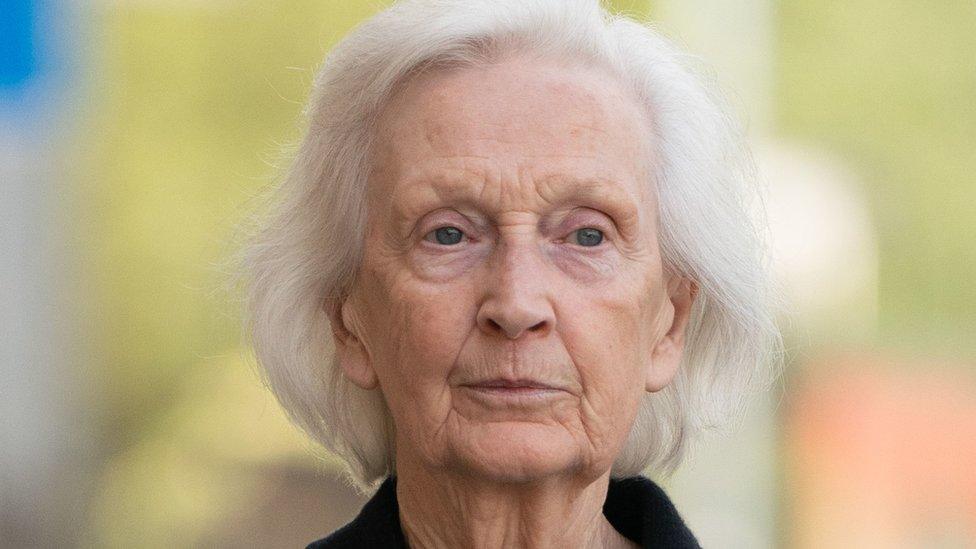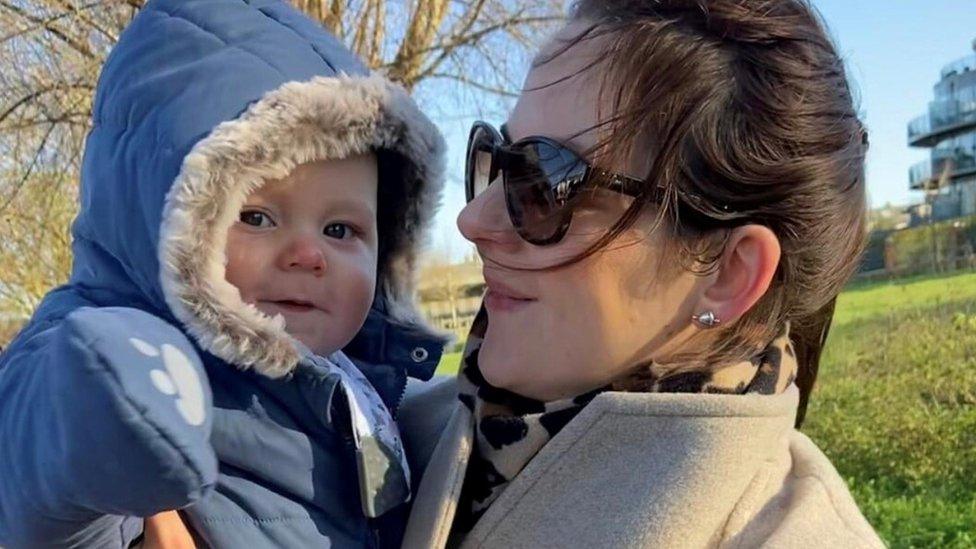Waterbeach pram death trial hears driver 'fell below competent standards'
- Published

Shelagh Robertson's defence team said she had undiagnosed Alzheimer's disease before and on the day of the crash
A driver with undiagnosed dementia was "ill-equipped to negotiate" a junction before a crash that killed a baby boy, a court heard.
Five-month old Louis Thorold died after his pram was hit on the pavement of the A10 near Cambridge on 22 January 2021.
Shelagh Robertson, 75, denies causing Louis's death by careless driving in Waterbeach, where she lives.
James Leonard, defending, said Mrs Robertson "fell below the standard of a reasonable and competent driver".
"She's trying to be safe, but she just doesn't have the presence of mind to be safe," he told Cambridge Crown Court in his closing speech.
Mrs Robertson, of Stables Yard, was driving home from the supermarket when she turned into the path of an oncoming van, forcing it on to the pavement where it hit Rachael Thorold and her son, the trial heard.
Mrs Thorold suffered serious injuries in the crash.

Louis Thorold was pictured with his mother Rachael just hours before the crash
Prosecutor David Matthew said: "There's no doubt here that Shelagh Robertson is suffering from a form of dementia and was suffering from it in January 2021."
He said an MRI scan of Mrs Robertson's brain from last autumn showed shrinkage in the area associated with memory and language and was "strong evidence of that".
But he raised the question of "where on the slope of dementia Shelagh Robertson was in January 2021".
"It's not just a question of whether someone has dementia; it's a question of how bad is it," he said.
The defence team argue she is not guilty by reason of insanity.
The jury is expected to begin its deliberations on Thursday.
Judge Mark Bishop told jurors that to return a special verdict of not guilty by reason of insanity, they must be satisfied, on the balance of probabilities, that Mrs Robertson had dementia at the time and either "did not know what she was doing or did not know that what she was doing was wrong".
He said that this "doesn't include a momentary failure to concentrate".
The trial continues.

Find BBC News: East of England on Facebook, external, Instagram, external and Twitter, external. If you have a story suggestion email eastofenglandnews@bbc.co.uk, external
Related topics
- Published8 August 2022
